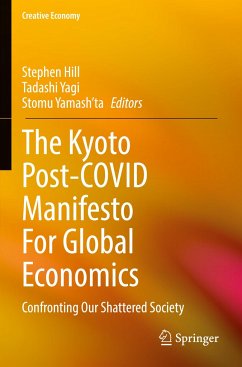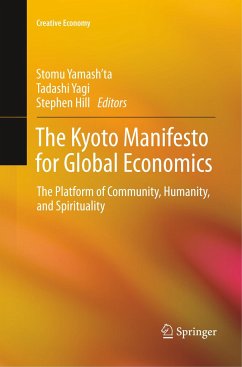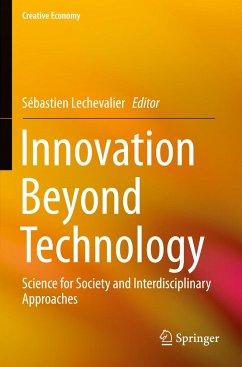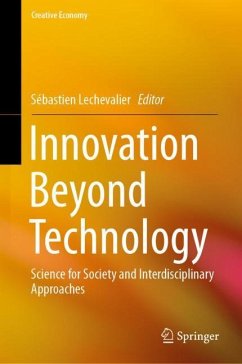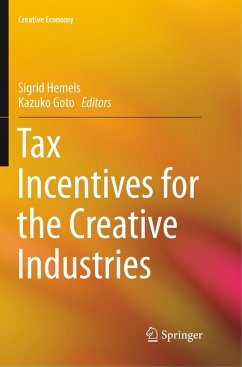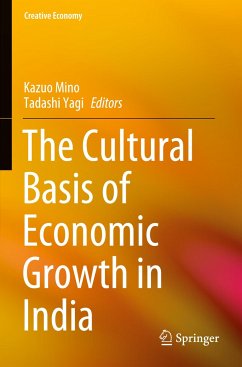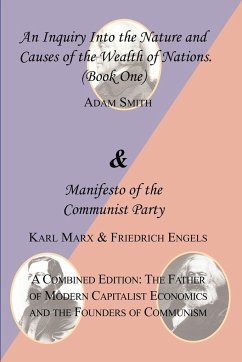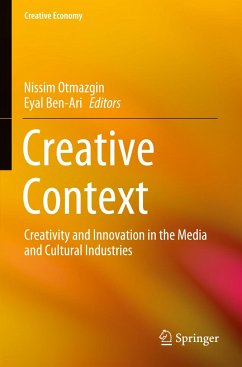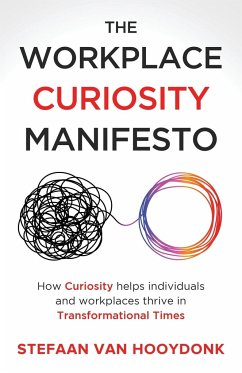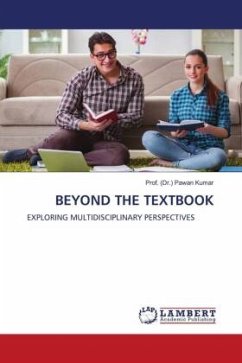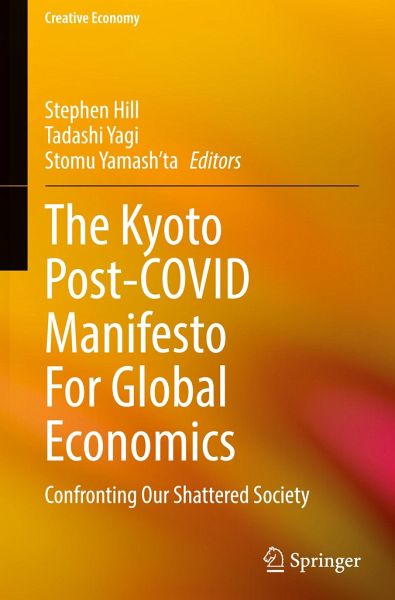
The Kyoto Post-COVID Manifesto For Global Economics
Confronting Our Shattered Society
Herausgegeben: Hill, Stephen; Yagi, Tadashi; Yamash'ta, Stomu

PAYBACK Punkte
53 °P sammeln!
This book, The Kyoto Post-COVID Manifesto for Global Economics (KM-PC), is a sequel to our 2018 book, The Kyoto Manifesto for Global Economics (KM-I, 2018). It further exposes the failures of a global economic regime that, based on self-interest, has led to the enormously unequal and fragmented society of today and our decreased ability to respond and recover from the critical worldwide consequences of such a regime over time - notably, climate change. At stake is our very survival beyond the twenty-first century.The fundamental tenet of this book is that our power to heal our currently fractu...
This book, The Kyoto Post-COVID Manifesto for Global Economics (KM-PC), is a sequel to our 2018 book, The Kyoto Manifesto for Global Economics (KM-I, 2018). It further exposes the failures of a global economic regime that, based on self-interest, has led to the enormously unequal and fragmented society of today and our decreased ability to respond and recover from the critical worldwide consequences of such a regime over time - notably, climate change. At stake is our very survival beyond the twenty-first century.
The fundamental tenet of this book is that our power to heal our currently fractured society lies in the depth of our humanity - in our shared human spirit and spirituality. What is sacred or of imperishable supreme value is what we can be as a human race: empowered, fulfilled individuals, living in harmony, deeply sharing and caring for one another and the environment that sustains us across our distinct cultures and worlds in whichwe live. Thus, the norms in our economic relations do not have to be those of self-interest that separates us, the ever-watchful distrust represented by "the deal" and immediate economic advantage for me. Instead, we can build an economic frame for our society based on mindfulness, care, mutual human benefit, and trust - on our shared humanity.
Our argument was complete and we were ready to publish. But then, suddenly, from the dawning of 2020, everything changed. COVID-19 invaded and the world as we knew it simply stopped. No one saw it coming. As authors, we waited to watch and seek to understand. The result is that the book captures the COVID trauma and, against the fractures based on self-interest already visible in today's society, assesses the impact of COVID-19 now and for the future. Focusing on a humanity-based economics is even more important now, and this book shows why.
Chapter 15 is available open access under a CreativeCommons Attribution 4.0 International License via link.springer.com.
The fundamental tenet of this book is that our power to heal our currently fractured society lies in the depth of our humanity - in our shared human spirit and spirituality. What is sacred or of imperishable supreme value is what we can be as a human race: empowered, fulfilled individuals, living in harmony, deeply sharing and caring for one another and the environment that sustains us across our distinct cultures and worlds in whichwe live. Thus, the norms in our economic relations do not have to be those of self-interest that separates us, the ever-watchful distrust represented by "the deal" and immediate economic advantage for me. Instead, we can build an economic frame for our society based on mindfulness, care, mutual human benefit, and trust - on our shared humanity.
Our argument was complete and we were ready to publish. But then, suddenly, from the dawning of 2020, everything changed. COVID-19 invaded and the world as we knew it simply stopped. No one saw it coming. As authors, we waited to watch and seek to understand. The result is that the book captures the COVID trauma and, against the fractures based on self-interest already visible in today's society, assesses the impact of COVID-19 now and for the future. Focusing on a humanity-based economics is even more important now, and this book shows why.
Chapter 15 is available open access under a CreativeCommons Attribution 4.0 International License via link.springer.com.



